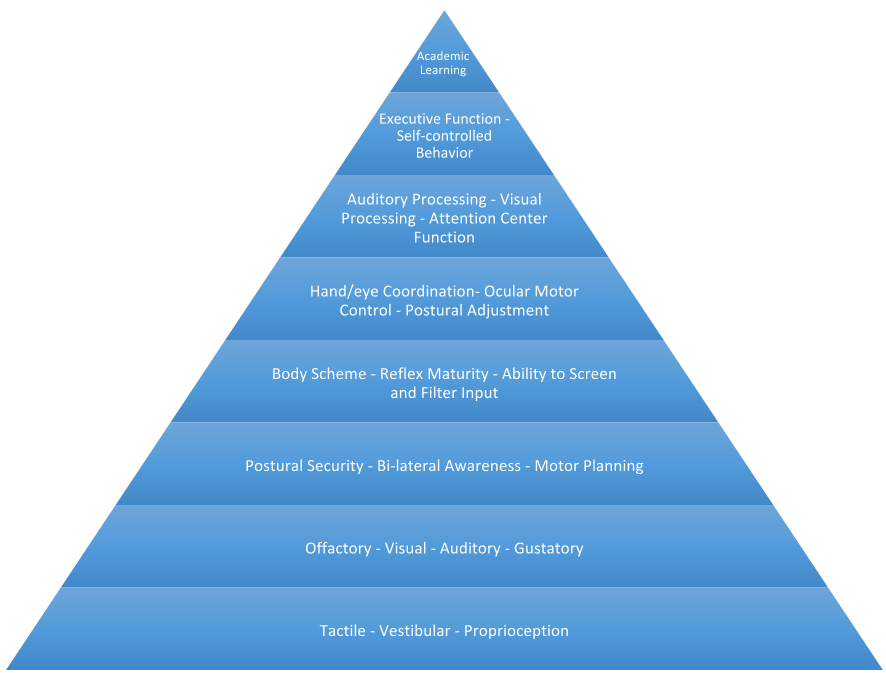The Kindergarten program nurtures the young child’s acquisition of knowledge through imitation and imagination. Through purposeful work, play and movement, the children develop the key foundations of academic learning, as noted below in the Pyramid of Learning Development.
Activities with Purpose
The home-like atmosphere of the classroom presents a daily opportunity for the child to cultivate a love of work. Each student contributes to the life of the classroom by helping to prepare the daily snack, care for the chickens, clean up the toys, garden, wash dishes and set the table. The confidence of completing a task inspires the child to try new things while developing key skills for academic study such as: sorting, tracking, sequencing, fine motor skills and stamina.
Inspired Play
Play in a Waldorf Kindergarten offers children the opportunity to develop social-emotional intelligence and creative problem solving skills. The children negotiate with their peers around the use of materials, how to build a house, who will play the king and who will be the knight, as well as, teaching others to tie their shoes. This testing of ideas and evaluation of roles nurtures a healthy underpinning of roles and exploration in the adolescent and young adult.
Moving to Learn
Daily movement allows the children to develop gross motor skills, integrate the senses, reduce impulsivity and establish awareness of the world around them and how they are moving through it. The morning circle is a deeply, intentional moment in the Kindergarten day. It combines singing, poetry and specific movements to enhance the development of the first five levels of the Pyramid of Learning Development and stimulate the sixth level. The circle time also provides the teachers with a clear picture of how the child is preparing for more rigorous academic work. Nature exploration, outdoor play, hiking, jumping rope, and hopscotch further enhance the morning circle movements.

Pyramid of Learning Development
